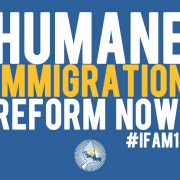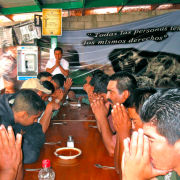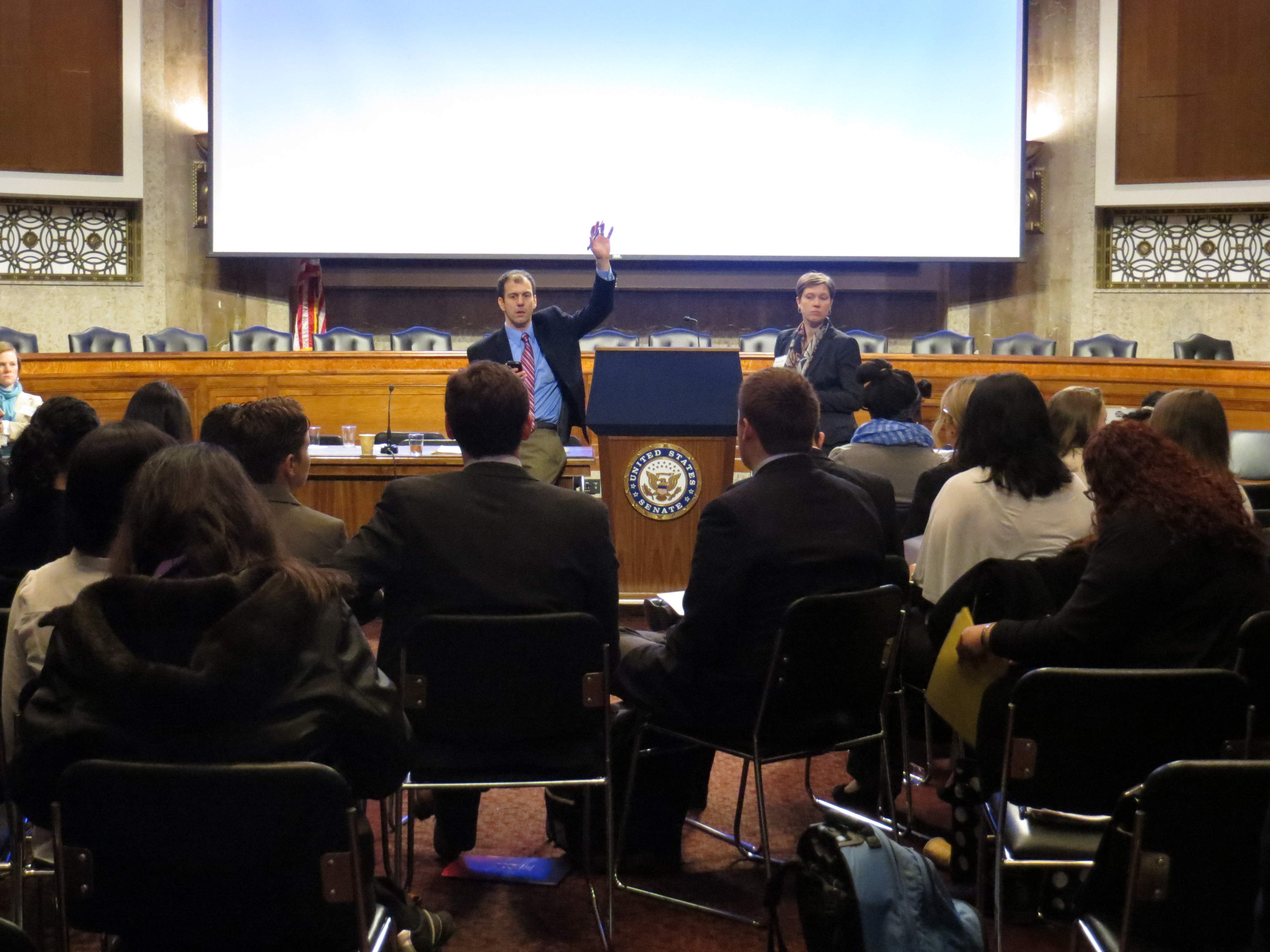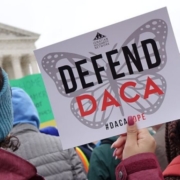New Study Sheds Light on Mistreatment of Migrants Crossing the US-Mexico Border
BY ISN STAFF | February 14, 2013
“New Study Sheds Light on Mistreatment of Migrants Crossing the US-Mexico Border”
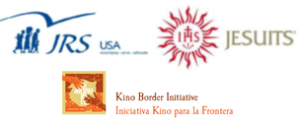 2/14/13 – The U.S. Jesuit Conference, Jesuit Refugee Service USA, and Kino Border Initiative have released a study that sheds light on the mistreatment of migrants crossing the U.S. Mexico Border.
2/14/13 – The U.S. Jesuit Conference, Jesuit Refugee Service USA, and Kino Border Initiative have released a study that sheds light on the mistreatment of migrants crossing the U.S. Mexico Border.
The comprehensive report details incidents of physical and verbal abuse suffered by migrants both at the hands of U.S. Customs and Border Protection (CBP) and Mexican police, and through attacks by human traffickers, robbers and gangs. Additionally, the study highlights the stories of migrants separated from family members and those who have been sexually assaulted by criminals, left for dead in the desert and then denied medical care by U.S. border agents.
The full report may be accessed by clicking here.
A summary of the report is available here.
While offering humanitarian assistance and food at its Aid Center for Deported Migrants in the border town of Nogales, Mexico, KBI noted a disturbing increase in the frequency of migrants’ accounts of mistreatment. In response KBI, which is a bi-national ministry of the Jesuits, collaborated with Jesuit Refugee Service/USA and the Jesuit Conference to undertake a study documenting migrant experiences at the border and making concrete policy recommendations to U.S. and Mexican authorities. The research and analysis was funded by Catholic Relief Services of Mexico.
In an effort to persuade lawmakers to rectify the situation, the report proposes taking steps to limit family separation during the deportation process; reunite families that have mixed legal statuses and are split between the U.S. and Mexico or Central America; reduce violence against migrants in Mexico and Central America; and curb abuse by the U.S. Border Patrol and local police in Mexico.
“We, as Jesuits, because of our commitment to educating the children of migrants in our schools, serving migrant communities in our parishes and offering deported men, women and children food and shelter on the border, see firsthand the costs of our current immigration laws,” said Jesuit Father Thomas Greene, secretary for Social and International Ministries at the Jesuit Conference.
Calling for broad reform and the need for professionalism in the U.S. Border Patrol, the three organizations made policy recommendations in the report based on the analysis of data drawn from surveys that KBI conducted of migrants visiting its aid center as well as data from the Mexican government’s own Northern Border International Migration Survey. Michael Danielson, a Ph.D. candidate in political science at American University, interviewed migrants in Nogales and evaluated the survey responses for the study.
Shaina Aber, policy director for Social and International Ministries at the Jesuit Conference, attributed the uptick in turbulence in Northern Mexico and the resulting vulnerability of deported migrants in large part to an intensified drug war and lack of serious cooperation between the Mexican state and federal governments in addressing the issue of migrant safety.
“There has been a dearth of follow-up by local police for migrants who are victims of violence at the hands of criminals, which may contribute to the rising crime rate,” she explained.
Migrants from Central America brave additional difficulties crossing borders from Central America into Mexico en route to the U.S. The findings demonstrated that a growing number of migrants cite the intensifying violence in their home countries as a driving reason for immigrating to the U.S. Honduras has the highest murder rate in the world, and nearly 12% of Honduran migrants reported fear of violence as the primary factor underlying their choice to migrate north.
Adding to the list of grievances against U.S. border authorities, the report showed that the U.S. Border Patrol frequently denied migrants their basic right as foreign nationals to contact their consulate when apprehended, even when migrants expressly requested to do so. Furthermore, a large proportion of migrants did not contact their consulate upon being caught because they were never made aware of their right to do so, were not sure how to establish contact or did not believe it would help.
Encouraging more transparency, dialogue, and accountability on the part of U.S. authorities, Jesuit Father Sean Carroll, Executive Director of KBI in Nogales, Ariz., said, “Law enforcement agencies like CBP and ICE must take local community input into account for true security and respect for human rights to become a reality along the U.S./Mexico border.”
Added Aber, “We recommend that U.S. Customs and Border Patrol allow lawyers or NGOs to inform migrants of their rights and do “know your rights” presentations at CBP facilities.”
Urging elected officials to “place family unity, human dignity, transparency and accountability at the center of their debates,” KBI, Jesuit Refugee Service/USA and the Jesuit Conference supported the U.S. Senate’s recent bipartisan efforts to improve the nation’s broken immigration system in a separate statement.
“We can and must do better,” the statement declared.
The Ignatian Solidarity Network is currently in the midst of Ignatian Family Advocacy Month, a national effort to bring attention to key issues including humane comprehensive immigration reform. Throughout the month of February Jesuit and partner institutions, including university, high school, and parish groups are meeting with representatives and senators in their local offices. ISN is also providing support to a group of Jesuit university students from Fairfield University, Loyola University Chicago, Loyola University Maryland, Loyola Marymount University, Santa Clara University, St. Peter’s University and University of Detroit Mercy, who will travel to Washington DC to speak with elected officials specifically about the need for humane immigration reform as it impacts those seeking to earn a higher education degree. The advocacy trip is part of a research study initiated by Fairfield University’s Center for Faith in Public Life.
In response to the announcement of the research study’s introduction, ISN executive director, Christopher Kerr said, “The insights this study provide are invaluable for the Ignatian family throughout the U.S. as they advocate for humane comprehensive immigration reform during Ignatian Family Advocacy Month and beyond. In particular, the findings related to the issues of family separation as a driver of migration and complication for families is a core element of the IFAM taking points on immigration reform.”
##
The Ignatian Solidarity Network (ISN) promotes leadership and advocacy among students, alumni, and other emerging leaders from Jesuit schools, parishes, and ministries by educating its members on social justice issues; by mobilizing a national network to address those issues; and by encouraging a life-long commitment to the “service of faith and the promotion of justice.” ISN is an independent 501c3 non-profit organization. Additional information can be found at: www.www.ignatiansolidarity.net
13-04


